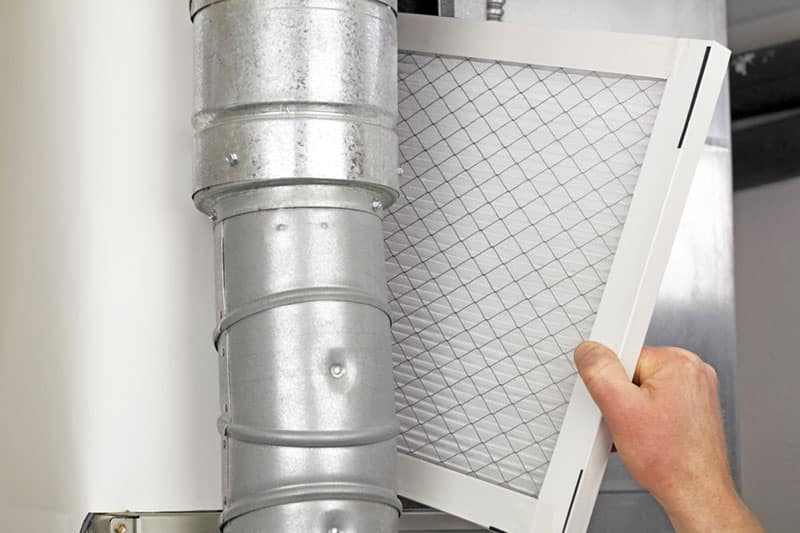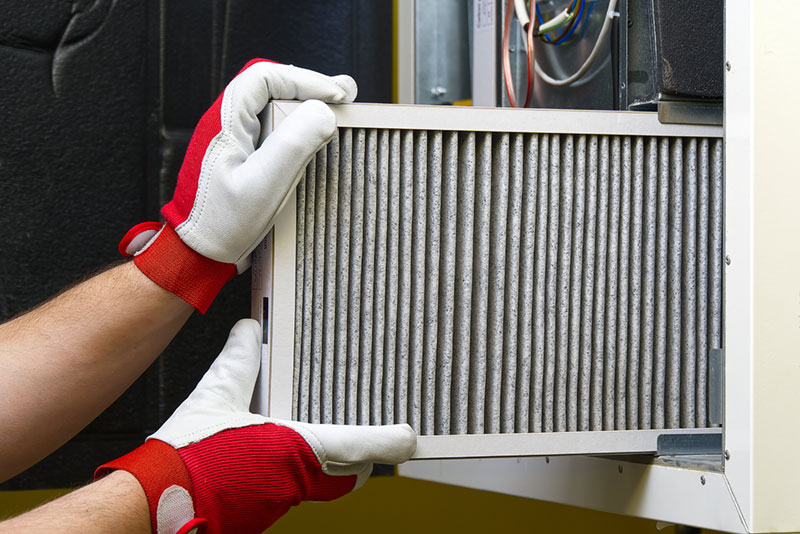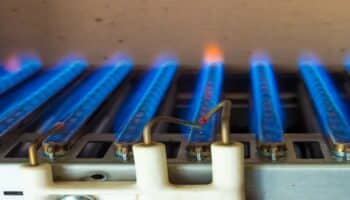We've independently reviewed this article to make sure it's as accurate as we can make it.
To find out more about our article creation and review process, check out our editorial guidelines.
Unsure about the differences between a 1 inch vs 2 inch furnace filter?
Don’t worry, this is a common issue. Choosing the right furnace filter can be a bit confusing.
Luckily, we’re here to help simplify things for you!
When choosing between a 1 inch vs 2 inch furnace filter, consider your needs. 1 inch filters are affordable with decent airflow, but they’re less efficient and have shorter life span. 2 inch furnace filters are pricier but offer superior efficiency, airflow, and longevity.
Right off the bat, you can see that there are a lot of benefits to 2-inch filters. But does that mean that 1-inch filters aren’t any good? Let’s dive in to the details and find the right match for your furnace.
1 Inch vs 2 Inch Furnace Filters
When fall and winter roll around, there’s nothing better than coming back to a toasty warm home. And thanks to your furnace, you can enjoy a cozy night in, no matter the weather outside.
But furnaces, like everything, require maintenance. And it’s time for you to change your furnace filter. But here’s the catch. You have two options. A 1-inch filter and a 2-inch filter. Which should you go for?
We’ve compared these two types of filters on a whole bunch of factors. Pay attention to which matters most to you, and you’ll discover which filter is the right type for you.
#1 Life Span
The first major difference between 1-inch and 2-inch filters is their life span.
1-inch filters have a shorter life span, so you need to change them once a month. 2-inch filters have a longer life span, so you should change them every 6 months.
But why is there such a big difference in their life spans? It’s because thicker air filters have more square footage. They have a larger surface area which they can use to hold air particles.

Even still, how often you change the filter depends on quite a few factors. These factors can extend or shorten the life span of your filter:
- How often you use the furnace. If your furnace is being heavily used, you will need to change the filter more often. You won’t have to change it as much during the spring and summer months.
- Whether you have pets or not. Dander and pet hair will clog up the filter faster. If you have multiple pets at home, you can expect to change the filter more regularly. This is especially the case if your pets are shedding.
- If you smoke indoors. Smoking indoors will clog the filter faster.
- The time of climate you live in and how often you have the doors and windows open. Dry and dusty climates bring in particles from outside. These particles will require you to change the filter more frequently. Pollen season will also bring in more particles that will require you to change the filter regularly.
#2 Efficiency
Another important difference between 1-inch and 2-inch filters is their efficiency. 1-inch filters tend to be less efficient than 2-inch filters due to the following reasons:
- Thicker filters fit more snugly into their slots. This allows less room for unfiltered air to slip through into the furnace.
- Thicker filters have a larger surface area. This helps them to catch more dust and debris.

There are, however, some instances where 1 and 2-inch filters can be on par when it comes to efficiency. This all depends on the MERV rating of the filter. The MERV rating is the classification that measures how well your filter blocks out particles.
The higher the MERV rating, the better the filter is at stopping the particles. This means that a 1-inch filter with a high MERV rating could work just as well as a 2-inch filter with the same rating.
Most 1-inch filters are available in MERV ratings 1 to 12. This allows you to get a very efficient filter for your money. These filters can stop particles down to 1.0 to 3.0 micron particle size.
It is worth noting though, that the higher ratings (anything above 8) are more tricky to get hold of.
2-inch filters normally have a wider range. They are usually available in MERV ratings 1 to 16. This means that they can block out even more pollutants. They can stop particles down to 0.3 to 1.0 micron particle size.
While a more efficient filter is typically better, it is possible to have too good of a filter. Ratings 12 and above are hospital levels of clean air, but this can be restrictive and cause furnace issues.
Not sure what to expect from 1-inch and 2-inch filters? Then allow the following table to illustrate that for you.
| Particle Trapped | 1-Inch Filter 9-12 MERV Rating | 2-Inch Filter 13-16 MERV Rating |
|---|---|---|
| Pollen | ✓ | ✓ |
| Dust mites | ✓ | ✓ |
| Sanding dust | ✓ | ✓ |
| Textile and carpet fibers | ✓ | ✓ |
| Mold and spores | ✓ | ✓ |
| Dust lint | ✓ | ✓ |
| Cement dust | ✓ | ✓ |
| Legionella | ✓ | ✓ |
| Lead dust | ✓ | ✓ |
| Humidifier dust | ✓ | ✓ |
| Coal dust | ✓ | ✓ |
| Nebulizer dust | ✓ | ✓ |
| Bacteria | ✓ | ✓ |
| Tobacco smoke | X | ✓ |
| Vehicle fumes | X | ✓ |
| Sneeze nuclei | X | ✓ |
| Insecticide dust | X | ✓ |
| Copier toner | X | ✓ |
| Pet dander | X | ✓ |
| Face powder | X | ✓ |
#3 Airflow
Different filter thicknesses also affect the airflow. What do I mean by that? Well, the thicker the filter the less restrictive it is. This contributes to a better flow of purified air.
This means that 2-inch furnace filters allow a better flow of air than 1-inch filters.
But what does bad airflow mean? If the airflow in your furnace system is poor then some of the rooms in your house will not be heated properly. When you turn on the furnace, these rooms will stay cooler.
So, is the airflow of a 1-inch filter bad? Not at all! But the airflow of a 2-inch furnace filter will be better.
It will ensure that all the rooms in your house are warmed equally. This is super important when we plunge into the winter months.
#4 Price
What is the pricing difference between 1 and 2-inch furnace filters? 1-inch filters tend to be cheaper than 2-inch filters. But in all honesty, the difference between the two prices isn’t anything to write home about.
You can get hold of a 1-inch furnace filter for about $6. You can find 2-inch filters for about $10 each. This makes the 1-inch filter the cheapest. But it is also good to remember that you will need to change a 1-inch filter more regularly. So, although they are cheaper to buy upfront, they could cost you more in the long run.
How much you will pay for your filter depends on a couple of factors. Here are just some of them.
- The MERV rating. Filters with higher ratings are more expensive.
- The size of the filter. The larger the filter in length and width, the more expensive it is.
- The brand and certification of the filter

FAQ
If you haven’t made up your mind about which furnace filter to choose, don’t worry! Here are some frequently asked questions that may help you make an informed decision.
Is It Ok to Use a Smaller Air Filter?
It’s not recommended to use an air filter that is too small for your HVAC system because allergens and dust will not be filtered, reducing the quality of the indoor air you breathe.
Can a Furnace Filter Be Too Good?
Yes! Filters with a higher MERV rating (the filter’s ability to catch air particles) may not be compatible with certain furnaces and cause issues with airflow.
What Happens if You Wait Too Long to Change Air Filter?
Your filter can become clogged with dust and allergens, restrict airflow, and can cause your furnace to malfunction.
Remember, if you have a 1-inch furnace filter, you need to change it once a month. But, if you have a 2-inch filter, you should change it every 6 months.
Conclusion
That about covers it! Here’s a quick summary of everything we’ve discussed so far:
| 1 Inch Furnace Filters | 2 Inch Furnace Filters |
|---|---|
| Shorter life span, change once a month | Longer life span, change every 6 months |
| Less efficient | More efficient |
| Good airflow | Better airflow |
| Cheaper | More expensive |
You should choose a 1-inch filter if:
- You are looking for a cheaper option
- You don’t need to filter out pet dander, tobacco smoke, and other smaller particles
- You’re not buying for the long term
You should choose a 2-inch filter if :
- You are looking for a filter with a longer life span
- The efficiency of the filter is important to you
- You want a filter with the best airflow
- You are looking for a cheaper, long-term replacement price
Has this article been helpful to you? Then why not check out some of our other articles and free guides? You could even sign up to our email list.
Have a great day!
-Craig







